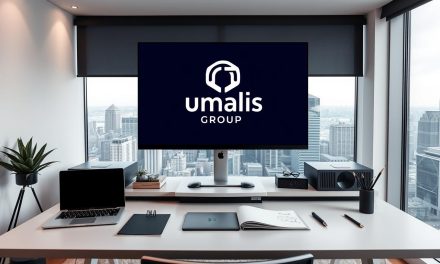Struggling with math or science concepts? You’re not alone. Many students need extra help to master these challenging subjects. A skilled freelance tutor can make all the difference in your educational journey.
In France’s rigorous education system, personalized support is more valuable than ever. Traditional classrooms often move too fast for individual learning needs. That’s where specialized tutoring services shine.
Our education tutors provide more than just academic instruction. They offer mentorship, build confidence, and create customized learning plans. With 78,195 reviews rating our tutors 4.9 out of 5 stars, we’ve proven our approach works.
This guide will help you find the perfect match for your learning style and goals. Let’s explore how the right teaching professional can transform your educational experience.
Table of Contents
Key Takeaways
- Personalized tutoring offers focused attention that classrooms can’t provide
- Math and science subjects often require specialized teaching approaches
- The right tutor provides both academic support and confidence building
- French curriculum standards may benefit from additional educational support
- Quality tutoring services show extremely high satisfaction rates (4.9/5 stars)
- Customized pacing helps students master challenging concepts effectively
- Finding a tutor with compatible teaching style is crucial for success
Why Choose a Freelance Tutor for Math and Science?
Many students face unique challenges in their academic journey. A personalized approach can make all the difference. This is where specialized educational support truly shines.

Personalized Learning Experience
Every student learns differently. Some need visual aids while others prefer hands-on examples. A good educator adapts to these individual preferences.
Custom lessons target specific trouble spots. This focused approach helps students grasp complex topics more effectively. Retention improves when learning matches personal style.
Flexible Scheduling Options
Life doesn’t always follow a school timetable. Illness, family events, or other commitments can disrupt regular study routines. Flexible session timing accommodates these changes.
Students can arrange lessons during their most productive hours. Evening or weekend sessions often work better for busy families. This adaptability reduces stress and improves learning outcomes.
Targeted Subject Support
Mathematics and science present particular challenges. These subjects build upon previous knowledge in cumulative ways. Missing foundational concepts creates learning gaps.
Specialized teaching methods address these subject-specific needs. Educators use targeted techniques for different scientific disciplines. This approach helps students master both basic and advanced concepts.
Research shows students receiving individualized attention show remarkable progress. Those who missed school time particularly benefit from customized catch-up plans. The right educational support transforms struggling students into confident learners.
Key Benefits of Working with a Freelance Tutor
Working with an independent educator offers advantages that traditional learning environments simply cannot match. These professionals bring specialized approaches that transform educational experiences.

Students receive attention tailored to their unique needs. This personalized approach creates remarkable academic breakthroughs.
One-on-One Attention and Customized Pace
Individual sessions allow educators to spot learning gaps instantly. They adjust teaching methods based on real-time feedback.
Custom pacing ensures mastery before moving forward. Students build confidence with each successfully mastered concept.
« The best teachers show you where to look but don’t tell you what to see. »
This philosophy guides quality educational support. Professionals focus on developing problem-solving skills rather than providing answers.
Bridging Cultural and Language Gaps in French Education
France’s education system presents unique challenges for international students. Cultural differences can affect learning comprehension.
Bilingual educators help navigate these complexities. They explain nuanced concepts in both French and the student’s native language.
Cultural sensitivity becomes particularly valuable for expatriate families. Understanding local educational expectations improves academic performance.
Research indicates that 68% of French clients prioritize cultural alignment when selecting collaborators. This extends to educational support services as well.
Overcoming Specific Learning Challenges
Many students face obstacles like dyslexia or attention difficulties. Specialized teaching strategies address these unique needs.
Patient guidance helps students develop coping mechanisms. They learn to work with their learning style rather than against it.
Consider Marie’s story: struggling with mathematics until she found the right support. Her educator used visual aids and hands-on examples.
Within three months, her grades improved from average to excellent. More importantly, she gained confidence in her abilities.
| Learning Challenge | Teaching Strategy | Typical Outcome |
|---|---|---|
| Attention Difficulties | Short, focused sessions with breaks | Improved concentration and retention |
| Language Barriers | Bilingual explanation of concepts | Better comprehension and participation |
| Math Anxiety | Real-world application examples | Reduced stress and improved performance |
| Cultural Adjustment | Curriculum context explanations | Smoother integration and understanding |
Educational support extends beyond academic improvement. It fosters emotional growth and cultural adaptation.
Students learn to approach challenges with resilience. They develop critical thinking skills that serve them throughout life.
The right guidance transforms struggling learners into confident achievers. This journey often begins with finding the perfect educational match.
For those considering independent educational careers, understanding freelance career development can provide valuable insights into this rewarding profession.
Essential Qualifications to Look For in Your Tutor
Finding the right educational partner requires careful consideration of their background and capabilities. The ideal candidate brings more than just knowledge to the table.
They combine expertise with practical teaching skills and cultural understanding. This powerful combination creates the foundation for academic success.

Subject Matter Expertise and Credentials
Advanced knowledge forms the core of effective educational support. Look for professionals with verified credentials in their teaching fields.
Mathematics and science require particularly strong foundational understanding. Degrees, certifications, and specialized training demonstrate this expertise.
Credible indicators include teaching licenses and subject-specific certifications. Membership in educational associations also signals professional commitment.
These qualifications ensure your instructor truly understands complex concepts. They can explain challenging material in multiple ways until it clicks.
Teaching Experience and Methodology
Years of practical experience shape exceptional educators. Seasoned professionals have encountered various learning challenges.
They develop flexible approaches that adapt to individual needs. This experience proves invaluable when students hit learning obstacles.
Effective methodology matches the student’s natural learning style. Visual learners benefit from diagrams and color-coded notes.
Auditory learners prefer discussions and verbal explanations. Hands-on learners thrive with experiments and practical examples.
The right approach makes difficult concepts suddenly understandable. It transforms frustration into « aha! » moments of clarity.
Understanding of French Curriculum Standards
France’s education system follows specific guidelines and expectations. Local syllabus requirements differ from international standards.
An educator familiar with these nuances provides targeted support. They know exactly what examiners look for in assignments and tests.
This knowledge helps students meet precise academic requirements. It also prepares them for national examinations and assessments.
Cultural context matters when explaining scientific concepts and historical developments. Local examples and references make learning more relevant.
According to educational research, 72% of students perform better when their support aligns with curriculum expectations. This alignment reduces confusion and builds confidence.
Verifying qualifications ensures you get the professional support you need. Review portfolios, check client feedback, and conduct interviews.
Ask about their continuous professional development practices. The best educators constantly update their knowledge and teaching resources.
They incorporate digital tools, video tutorials, and interactive content. These resources make learning sessions more engaging and effective.
Ultimately, the right educational partner combines deep knowledge with practical teaching skills. They understand both the subject matter and the student’s unique needs.
This powerful combination creates the ideal environment for academic growth and confidence building.
Communication and Teaching Style Compatibility
Successful learning partnerships thrive on mutual understanding and clear dialogue. The right connection transforms educational experiences from frustrating to fantastic. Compatibility in communication methods and teaching approaches makes this transformation possible.
Finding an educator who matches your learning preferences creates remarkable results. The best sessions feel like natural conversations rather than formal lessons. This comfort level encourages questions and deeper exploration of subjects.
Language Proficiency Requirements for France
Clear communication forms the foundation of effective education. In France, language skills become particularly important for academic success. Many students benefit from bilingual explanations of complex concepts.
French curriculum standards often require specific terminology understanding. Educators must explain these terms in ways students comprehend. Research shows that 68% of French clients prioritize cultural alignment when selecting educational support.
Language barriers can hinder mathematical and scientific understanding. Concepts like « théorème » or « hypothèse » need clear explanation. The right professional ensures no meaning gets lost in translation.
Assessing Teaching Approach and Personality Fit
Teaching methods vary as much as learning styles. Some educators use interactive games while others prefer structured discussions. The best match depends on individual student preferences.
Personality compatibility greatly impacts session effectiveness. A comfortable environment encourages risk-taking and questions. Students perform better when they feel understood and respected.
« Good teaching is more a giving of right questions than a giving of right answers. »
Initial meetings help assess this compatibility. Trial sessions reveal communication styles and teaching methods. Observe how the educator explains challenging concepts during these meetings.
Red flags include rigid teaching approaches or poor listening skills. The best professionals adapt their methods based on student feedback. They create customized approaches for each unique learner.
Technology and Platform Comfort Level
Modern education increasingly relies on digital tools and platforms. Comfort with technology ensures smooth session delivery. Professionals should master platforms like Zoom, Skype, and educational software.
Technical hiccups can disrupt learning flow and concentration. Educators prepared with backup plans maintain session continuity. They keep the focus on education rather than technology issues.
Digital resources enhance learning through visual aids and interactive content. Videos, simulations, and online exercises make concepts more engaging. The right tools transform abstract ideas into tangible understanding.
Effective educators incorporate project management principles into their sessions. As explored in freelance career development, organization skills significantly impact service quality. Structured approaches ensure comprehensive concept coverage.
Regular feedback mechanisms allow for teaching style adjustments. The best professionals actively seek input on their methods. This flexibility demonstrates commitment to student success above all else.
Evaluating Teaching Methods and Resources
Great educational experiences begin with thoughtful preparation and the right tools. The best educators combine structured planning with creative approaches that make learning engaging. They understand that every student deserves materials tailored to their unique needs.

Effective teaching goes beyond simply covering curriculum content. It involves creating an environment where students feel supported and challenged in equal measure. The right resources can transform difficult concepts into understandable ideas.
Lesson Planning and Customization Capabilities
Quality educators develop detailed roadmaps for student success. These plans align with syllabus requirements while allowing flexibility for individual pacing. They adjust based on ongoing assessment results and student feedback.
Custom worksheets and targeted exercises address specific learning gaps. Research shows customized materials improve retention by 40% compared to generic resources. The best professionals create resources that match each student’s current level and goals.
Regular assessments help track comprehension and identify areas needing reinforcement. These evaluations range from quick comprehension checks to formal tests. They provide valuable data for adjusting teaching strategies.
Use of Digital Tools and Learning Materials
Modern education embraces technology to enhance learning experiences. Interactive whiteboards and educational apps make abstract concepts tangible. Video tutorials break down complex problems into manageable steps.
Science students benefit from simulation software that demonstrates experiments safely. Math learners gain from graphing calculators and geometry applications. These tools bring subjects to life in ways textbooks cannot.
Online resources provide additional practice and reinforcement between sessions. Educational platforms offer thousands of exercises across all difficulty levels. Students can practice at their own pace with instant feedback.
« Technology is just a tool. In terms of getting the kids working together and motivating them, the teacher is the most important. »
Adaptation to Different Learning Styles
Students process information through various channels. Visual learners benefit from diagrams, charts, and color-coded notes. Auditory learners prefer discussions, explanations, and verbal repetition.
Kinesthetic learners thrive with hands-on activities and physical examples. Great educators identify these preferences and adapt their methods accordingly. They might use building blocks for math concepts or experiments for science principles.
Multimedia resources cater to multiple learning styles simultaneously. Interactive quizzes combine visual elements with immediate feedback. Video explanations provide both visual and auditory input.
The most effective teaching combines thorough planning with flexible execution. It uses modern tools while respecting individual learning preferences. This approach creates optimal conditions for academic growth and confidence building.
When evaluating educational support, review sample materials and ask about their customization process. The best services demonstrate adaptability and resourcefulness in their approach. They show how they would address your specific learning needs.
Tracking Progress and Measuring Success
Effective educational support involves more than just teaching sessions. It requires systematic tracking to ensure real improvement. The right monitoring approach transforms learning from guesswork to measurable growth.
Students and educators benefit from clear progress indicators. These measurements show what’s working and what needs adjustment. They turn abstract goals into tangible achievements.
Regular Assessment and Feedback Systems
Frequent check-ins create a clear picture of student development. Quick quizzes after sessions gauge immediate understanding. Longer tests every few weeks measure concept retention.
Constructive feedback helps students recognize their strengths. It also identifies areas needing more attention. This balanced approach builds confidence while addressing challenges.
Digital tools make assessment more engaging and efficient. Online platforms provide instant results and analysis. Students see their progress in real-time graphs and charts.
Goal Setting and Achievement Monitoring
Clear objectives keep learning focused and motivated. Short-term targets might include mastering specific math formulas. Long-term goals could involve improving overall science grades.
Progress reports document achievements along the way. Celebrating milestones maintains enthusiasm and commitment. Even small victories deserve recognition and encouragement.
Parents often appreciate involvement in progress tracking. Regular updates create transparency and collaborative support. Family encouragement significantly boosts student motivation.
Adjusting Strategies Based on Results
Assessment data guides teaching method adjustments. If quizzes show poor comprehension, approaches need changing. Successful strategies get expanded and reinforced.
Flexible educators adapt their techniques based on results. They might incorporate more visual aids or hands-on examples. The best teaching evolves with the student’s needs.
Continuous improvement ensures sustained academic growth. Regular strategy reviews keep learning fresh and effective. This adaptability is key to long-term success.
| Assessment Type | Frequency | Primary Purpose |
|---|---|---|
| Quick Comprehension Checks | After each session | Measure immediate understanding |
| Weekly Progress Quizzes | Every 7-10 days | Track concept retention |
| Monthly Comprehensive Tests | Every 4 weeks | Evaluate overall progress |
| Informal Skill Demonstrations | Ongoing | Assess practical application |
Effective progress tracking combines multiple approaches. Formal assessments provide structured data points. Informal observations capture qualitative improvements.
Confidence growth often becomes the most valuable indicator. Students who begin fearing math problems end up embracing challenges. This transformation demonstrates the true power of quality educational support.
The right monitoring system creates a partnership in learning. Students become active participants in their progress journey. This collaborative approach yields the best academic results.
Finding and Hiring the Right Freelance Tutor
Securing the perfect educational partner requires strategic searching and careful evaluation. The process involves multiple steps to ensure you find someone who truly meets your needs. With the right approach, you can identify professionals who deliver exceptional results.
Where to Search for Qualified Tutors in France
Several platforms connect students with skilled educators across France. Freelancer.com offers a broad selection of teaching professionals with various specialties. Guru provides detailed portfolio displays and transaction history for credibility verification.
Local educational networks often feature vetted professionals familiar with regional curriculum standards. School recommendations and parent referrals can lead to trusted, experienced educators. These personal connections often yield the most reliable matches.
Online job postings allow you to specify exact requirements for subjects and schedules. Clear listings attract qualified candidates who match your specific needs. Detailed descriptions help filter applicants efficiently.
Reviewing Portfolios and Client Feedback
Professional portfolios showcase credentials and teaching methodologies. Look for subject-specific expertise demonstrated through past projects. Success stories with similar students indicate relevant experience.
Client feedback provides insight into reliability and effectiveness. Consistent positive reviews suggest quality service delivery. Look for patterns in comments about teaching style and student progress.
Platforms like Guru display all-time transaction data and service history. This information helps verify professional consistency and commitment. It offers concrete evidence of an educator’s track record.
Interview Questions and Trial Sessions
Initial conversations reveal teaching approaches and personality compatibility. Ask about experience with French curriculum standards and assessment methods. Inquire about their problem-solving strategies for challenging concepts.
Trial sessions provide practical demonstrations of teaching effectiveness. They allow assessment of communication style and learning environment creation. These sessions help determine if the professional-student dynamic works well.
Discuss scheduling flexibility, cancellation policies, and progress reporting methods. Clear agreements prevent misunderstandings later. Negotiate terms that work for both parties.
« The best teachers are those who show you where to look but don’t tell you what to see. »
Referrals from schools or other parents often lead to trusted professionals. These recommendations come with verified track records of success. They reduce the uncertainty in the selection process.
| Evaluation Criteria | What to Look For | Red Flags |
|---|---|---|
| Credentials Verification | Degrees, certifications, teaching licenses | Vague or unverifiable qualifications |
| Teaching Experience | Years in education, subject specialization | Limited experience with specific age groups |
| Client Feedback Analysis | Consistent positive reviews, specific success stories | Patterns of negative comments about reliability |
| Trial Session Performance | Clear explanations, engaging methods, rapport building | Rigid teaching style, poor listening skills |
| Curriculum Knowledge | Familiarity with French educational standards | General knowledge without specific curriculum understanding |
The hiring process becomes straightforward when approached systematically. Begin with platform searches or personal referrals. Review credentials and feedback thoroughly.
Conduct interviews to assess compatibility and methodology. Schedule trial sessions to observe actual teaching effectiveness. Finally, negotiate terms that ensure a productive partnership.
This comprehensive approach leads to successful educational collaborations. It matches students with professionals who can truly transform their learning experience.
Conclusion
Choosing the right educational support can transform your academic journey. Personalized learning makes math and science accessible and enjoyable.
Look for professionals with strong subject knowledge and teaching experience. Cultural understanding matters in France’s education system.
Use platforms with detailed profiles and reviews to find your match. Check qualifications and communication style before committing.
Regular feedback and progress tracking ensure continuous improvement. This approach builds confidence and mastery in challenging subjects.
Ready to begin? Explore tutoring opportunities to connect with skilled educators who match your needs.
Your academic success starts with finding the right support partner today!
FAQ
What subjects do you specialize in as a tutor?
I focus on math and science, offering support in areas like algebra, calculus, physics, and biology to help students build confidence and improve their grades.
How do you personalize lessons for each student?
A> I tailor sessions based on individual learning styles, goals, and challenges, using customized materials and pacing to ensure the best possible understanding and progress.
What teaching methods and resources do you use?
I combine interactive discussions, practical examples, digital tools, and visual aids to make learning engaging and effective for different types of learners.
How do you track student progress and provide feedback?
Regular assessments, goal-setting check-ins, and constructive feedback help monitor improvement and adjust strategies as needed to keep students on track.
What qualifications and experience do you have?
With years of teaching experience and a strong academic background in math and science, I’m equipped to support students at various levels, including following curriculum standards.
How flexible is your scheduling for sessions?
I offer adaptable timing to fit busy schedules, including evenings and weekends, and can accommodate last-minute changes when possible.
What technology or platforms do you use for online tutoring?
I use reliable video conferencing tools, interactive whiteboards, and shared digital resources to create a seamless and effective online learning experience.
How do you help students overcome specific learning challenges?
By identifying individual hurdles and applying targeted strategies, I break down complex topics into manageable steps to build understanding and reduce frustration.





